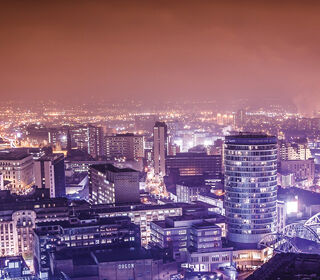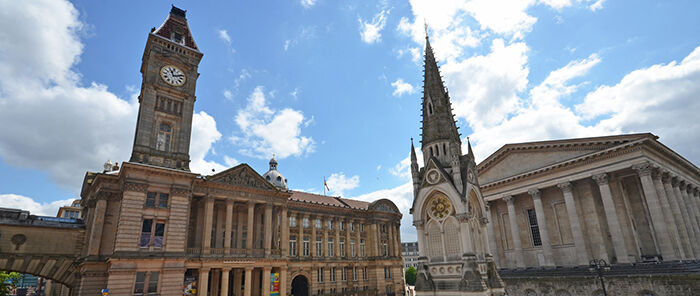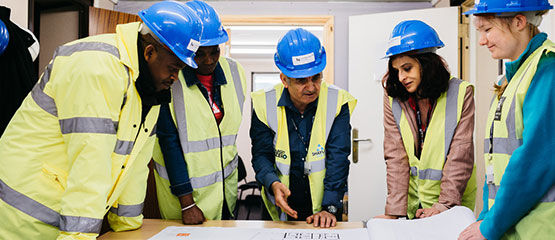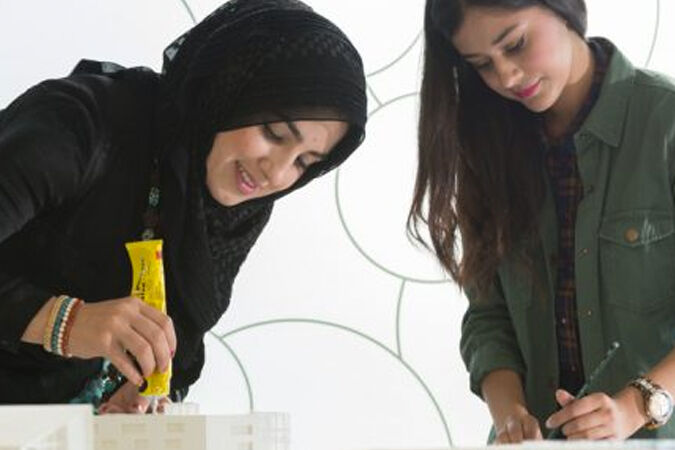
Blog

Arguably one of the most highly anticipated sporting events across the globe, the Commonwealth Games will be coming to Birmingham in 2022. The Games is an 11-day event between Commonwealth countries, where international athletes compete in a variety of sports to unite members of these nations and territories.
As a global spectacle that reaches over 1.5 billion people on television alone, hosting the Commonwealth Games brings many responsibilities, but even more benefits. After the successful Birmingham Bid in 2017, the second city has been planning its most ambitious regeneration scheme to date in anticipation for the event.
With the 2022 Commonwealth Games just around the corner, Birmingham-based property investment company, Joseph Mews, discusses what hosting the spectacle will mean for the city - from the economy, to the built environment:
The Economy
The benefits of hosting the Commonwealth Games spread far and wide, stimulating economic growth years in advance. Not only will the Games bring an additional 4,526 jobs to Birmingham yearly until 2022, but it’s estimated that 950 jobs will be available annually thereafter.
As one of the biggest events ever held in Birmingham, the Commonwealth Games includes an apprenticeship scheme and is providing opportunities for up to 12,500 trained volunteers. The mass workforce behind the Games indicates its significance to the city, as well as the potential it has to maximise long-term economic benefits, create new international trade agreements and support local businesses bidding for supply chain opportunities.
Celebrations surrounding the Games will begin in March 2022, providing an initial boost for the local economy. Kickstarting the global event, this festival will commemorate Birmingham’s multiculturalism and will unite the city through the use of artwork, performances and events. In doing so, local businesses will have the opportunity to compensate for COVID-19 business losses, ahead of the estimated £300 million revenue generated from Games’ contracts.
Riding the economic momentum kick-started by the event, the city will continue to thrive for years to come. The employment opportunities will provide the community with invaluable work experience and skills, while the additional business for local companies will generate more revenue and inevitably, deliver more jobs to the economy.
Tourism
With over 71 countries participating in the Commonwealth Games and attracting a global audience, Birmingham’s rich culture will be showcased to the world. In addition to raising Birmingham’s profile on the global stage, it is expected that the Games alone will entice over one million spectators to the city.
However, the long-term effects on tourism are arguably more beneficial for host cities. After holding the 2002 Commonwealth Games, Manchester’s tourism industry reported significantly more growth than before the global event. The number of tourists rose by just 10,000 in the three years leading up to the Games, whereas statistics have shown consistent growth in the five years following the spectacle, reaching as high as 971,000 tourists in 2007.
After the challenges of COVID-19, this boost to Birmingham’s tourism is paramount. Attracting more tourists to the city will replenish the industry as a whole, while thriving tourism will also deliver more jobs across the economy as demand grows. Birmingham’s renowned multiculturalism will also expand further with this increased tourism, by uniting different cultures and countries.

Regeneration
The Commonwealth Games has catalysed both direct and indirect investment across Birmingham, with extensive regeneration schemes well underway. Alexander Stadium in Perry Barr will act as an anchor for the Games, hosting both the opening and closing ceremonies and securing a long-term legacy for Birmingham. With a £72 million redevelopment plan in place, the stadium will welcome thousands of international visitors, before opening exclusively to Birmingham City University students for athletic purposes. Providing world-class facilities in a reputable stadium, students will experience the best of what Birmingham has to offer.
As the focal point of the Games and an integral part of Birmingham’s future, over 5,000 homes will be delivered across Perry Barr in the coming years. With an investment of around £500 million, accessibility surrounding this area is also set for improvement, including additional transport, cycling routes and road work projects. In addition to making the area more accessible throughout the Games, the increased transport will allow students more opportunities to use these facilities.
With the reach of the Commonwealth Games, and the anticipated surge in tourism, Birmingham will be well and truly in the spotlight. To maximise this exposure, additional projects have been approved to revitalise the city centre. Focusing on Victoria Square, a £25 million project will renew 40,000 sq. m of public realm, conducting repairs, increasing security and extending pedestrian access.
When combined with the ongoing HS2 development, these improvements and additions to Birmingham’s built environment will drive further investment into the city. The benefits of this will be two-fold - the city itself will improve with amenities and cultural realms, while businesses will become more likely to follow the lead of HSBC, HMRC and PwC and headquarter their companies in Birmingham, subsequently boosting employment opportunities.
Future Investment
When the Commonwealth Games arrives in Birmingham, and these regeneration schemes are complete, the myriad opportunities to be had within the second city will be showcased to the world. Combined with the trade deals that take place during the event, Birmingham’s expanding network will encourage further inward investment from both Commonwealth and non-Commonwealth countries.
As well as now being a tourist hotspot, Manchester continues to reap the rewards of hosting the 2002 Commonwealth Games in many ways. In 2014, the Abu Dhabi United Group formed a £1 billion ‘commercial venture’ with the council to regenerate East Manchester. Since hosting the global event, investment into this UK city has increased tenfold, and provides a framework of what’s in store for the West Midlands.
The ripple effect of future investment will propel Birmingham for many years to come. Not only will it solidify the city’s ranking amongst UK hotspots and on the global stage, but the potential for leisure and employment options will continue to increase. With the (soon-to-come) easy access to London, along with a plethora of amenities and jobs, Birmingham - and the wider West Midlands region - will be a hub of opportunities.





